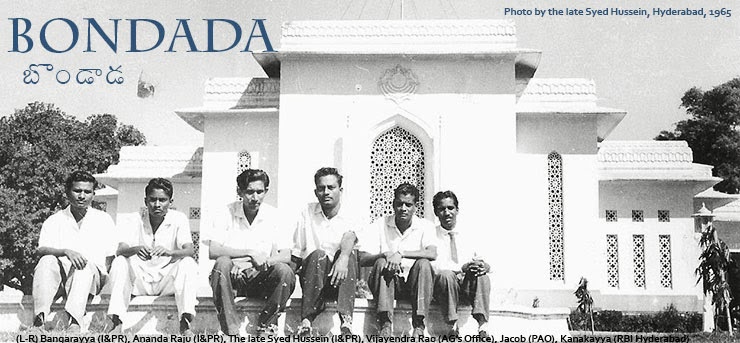Tuesday, April 28, 2009
If the scriptures cannot help!!!
Sunday, April 26, 2009
The day was memorable
hyderabad
April 26: For Mrs D. Lakshmamma, a middle-aged labourer, April 23 was a day of triumph. She was able to cast her vote freely at last, enjoying a privilege which thousands of Dalits have been denied since Independence.
The day was memorable in another sense too. Mrs Lakshmamma, a resident of Bandameeda Harijanawada, a Dalit colony, walked across the main streets of Kalicherla village to reach the polling station. This too was a rare privilege.
The 2009 general elections will be remembered for many things. But for this group of Dalit families, it was a day when they tasted real freedom for the first time, braving the threat of feudal lords who had dominated them all their lives.
“After reaching the polling station I was doubtful whether they will allow me to vote because I don’t have a voter ID card,” said Mrs. Lakshmamma. However, the polling staff allowed her to vote since she had brought her ration card as proof of identity. It may be surprising to many, but in the politically vibrant Chittoor district, there are about 50 villages where Dalits and Muslims do not dare to cast their vote. Elections to local bodies will always be unanimous in these villages that fall in Chandragiri and Tamballapalli assembly constituencies. When elections take place for the Assembly or Parliament the voters’ lists will have the names of Dalits but they will never see a polling booth.
“Ironically, the polling percentage used to be 90 per cent in booths under which the Dalit colonies fell,” said the Chittoor district collector, Mr Ravichandra.
This time, the collector and the superintendent of police, Mr K. Lakshmi Reddy, took the initiative to instill courage among Dalits after some organisations complained to the chief electoral officer, Dr I.V. Subba Rao, about the stranglehold of feudal lords. But the arrogant feudal lords brazenly said that they would spend Rs 1 crore to ‘manage’ the authorities.
To restrain them, the collector ordered the police to slap cases under SC/ST Atrocities (Prevention) Act against those who tried to stop Dalits from voting.
The Dalits are happy at getting the right to vote but are also afraid of retaliation. The district collector has assured them that he would keep a continuous vigil to prevent this.
Friday, April 10, 2009
Thursday, April 02, 2009
Email in Indian Languages
When you compose a new mail in Gmail, you should now see an icon with an Indian character, as the screenshot below shows. This feature is enabled by default for Gmail users in India. If you do not see this function enabled by default, you will need to go the "Settings" page and enable this option in the "Language" section.
 When you click the Indian languages icon, you can type words the way they sound in English and Gmail will automatically convert the word to its Indian local language equivalent. For example, if a Hindi speaker types "namaste" we will transliterate this to "नमस्ते." Similarly, "vanakkam" in Tamil will become "வணக்கம்." We currently support five Indian languages -- Hindi, Tamil, Telugu, Kannada and Malayalam -- and you can select the language of your choice from the drop-down list next to the icon.
When you click the Indian languages icon, you can type words the way they sound in English and Gmail will automatically convert the word to its Indian local language equivalent. For example, if a Hindi speaker types "namaste" we will transliterate this to "नमस्ते." Similarly, "vanakkam" in Tamil will become "வணக்கம்." We currently support five Indian languages -- Hindi, Tamil, Telugu, Kannada and Malayalam -- and you can select the language of your choice from the drop-down list next to the icon. We built this new feature using Google's transliteration technology, which is also available on Google India Labs, Orkut, Blogger and iGoogle. I hope you find this feature useful to communicate with those of your friends and family who prefer to write in their native language, and it will be available soon to businesses and schools using Google Apps. Now back to replying to all those Hindi emails I got from my family and friends today!
We built this new feature using Google's transliteration technology, which is also available on Google India Labs, Orkut, Blogger and iGoogle. I hope you find this feature useful to communicate with those of your friends and family who prefer to write in their native language, and it will be available soon to businesses and schools using Google Apps. Now back to replying to all those Hindi emails I got from my family and friends today!
